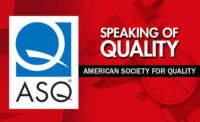A standard is a document established by consensus and approved by a recognized bodythat provides – for common and repeated use – rules, guidelines or characteristics for activities or their results, aimed at the achievement of the optimum degree of order in a given context.1 They provide organizations with the shared vision, understanding, procedures, and vocabulary needed to meet the expectations of their stakeholders. Standards present precise descriptions and terminology so consequently they offer an objective and authoritative basis for organizations and consumers around the world to communicate and conduct business.
The International Organization for Standardization, popularly known as “ISO,” coordinates the development, revising, reissuing and sale of international standards. ISO is a worldwide federation of nearly 170 national standards bodies including the American National Standards Institute (ANSI) which oversees the development of standards in the United States. ISO currently offers over 24,000 standards with ISO 9001, Quality Management Systems – Requirements, being the most popular by sales volume.
“Standards offer an objective basis for organizations and consumers around the world to communicate and conduct business. ”
ANSI accredits standards that are developed by representatives of standards organizations, government agencies, consumer groups, companies, and others. ASQ is one such standards organization; it oversees quality standards within the U.S. ASQ is a professional society for quality professionals and practitioners that provides quality related training, conferences, certifications and publications; these publications include nearly 200 U.S. standards, including coordination of ISO 9001 within the U.S.
Quality standards are documents that provide requirements, specifications, guidelines, or characteristics that can be used consistently to ensure that materials, products, processes, and services are fit for their purpose. Quality standards help organizations achieve objectives such as:
- Satisfying their customers’ quality requirements
- Ensuring their products and services are safe
- Complying with regulations
- Meeting environmental objectives
- Protecting products against climatic or other adverse conditions
- Ensuring that internal processes are defined and controlled
The use of quality standards is voluntary, but some organizations, government agencies and industries may expect or contractually require suppliers and partners to comply with a specific standard as a condition of doing business. For instance, IATF 16949 is a quality management system technical specification espousing continual improvement, emphasizing defect prevention and the reduction of variation and waste within the automotive industry supply chain and assembly process. Similarly, TL9000 is used within the telecommunications industry.
On the international stage, ASQ is the secretariat for three ISO committees and domestically it administers three Z-1 Subcommittees, three U.S. Technical Advisory Groups, and the ASQ Standards Committee. ASQ is the administrator of consensus bodies called “Accredited Standard Committee (ASC) Z-1 subcommittees” that cover generic standards having application in the fields of quality, environment, and statistics. The purpose of each ASC Z-1 subcommittee is to coordinate, review, serve as a consensus body, and adopt international standards within their field as American National Standards. Members of these three subcommittees may include national organizations, companies, governmental agencies, and individuals interested in contributing to the American National Standards development process.
A technical advisory group (TAG) is composed of a group of experts in a particular field and are actively involved in the creation of international standards. Their primary purpose is to develop and transmit the U.S. position on activities or draft standards of the appropriate ISO technical committee. Participation in a TAG is an opportunity for various U.S. stakeholders to help shape international standards that will influence how they do business globally. Participants have devoted many years to becoming experts in their fields and have a tremendous responsibility to protect their country’ trade and commercial interests. TAGs are accredited by ANSI and must follow ANSI procedures. ANSI has delegated the administration of these three TAGs to ASQ: ISO/TC 176 on quality management, ISO/TC 207 on environmental management, and ISO/TC 69 on statistical applications.
The ASQ Standards Committee is comprised of appointed representatives from the various ASQ divisions, its technical membership groups. Each division coordinates technical expertise amongst its membership to remain aware of trends and practices that indicate when a standard might be needed. Through their representatives, divisions bring their ideas to the ASQ Standards Committee. Without subject matter expertise, neither ASQ nor the committees it administers could develop standards that reflect the most current technology in quality. The ASQ Standards Committee develops new standards or reaffirms/revises existing standards adhering to the consensus process established by ANSI. For example, a group of experts within the ASQ Inspection Division recently developed and published the standard ASQ/ANSI ID1:2021 Inspection Techniques and Requirements – Guidelines.
Further information about ASQ’s involvement with standards can be found at ASQ’s Standards Central at asq.org/standards/index.html. You may also contact [email protected] if you should have any interest in becoming a technical advisory group member.
References:
1. source: Standards 101 | ASQ



